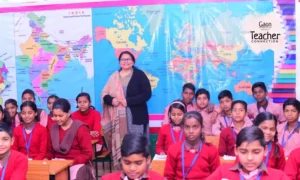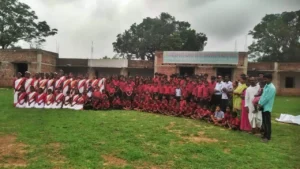I am a teacher in Samamai village in Uttar Pradesh’s Hathras district and I have launched an initiative to safeguard the environment. I am posted as a science scout at the Composite School Samamai. My duties include not only teaching science to students but also ensuring that they are aware about the need to protect the environment.
In the wake of an adversely changing climate, I have tried my best to make students participate in group activities and work in a coordinated manner to protect their local environment.
I have about 350 students in my school and I have divided the boys and girls into two teams — the boys’ team is named paryavaran yodhha [environment warriors] while the girls’ team is named paryavaran prehari [environment guardians]. These two teams compete against each other to come up with the best practices aimed at the conservation and protection of the environment.
Also Read: A 13-yo wants to eradicate dowry system, fight casteism — thanks to a community library
Last year, these teams conducted a survey about the importance of living in a hygienic environment. The survey concluded that the population which lives near an open drain is prone to falling sick three times more than the general population which lives in hygienic areas with covered drains.
Another survey conducted by these teams found that the people who have a small garden or flower pots at their houses are eight times less likely to fall sick as compared to those who do not have plants or flowers in their houses.
Based on the findings of our survey, the school also launched a campaign to distribute plants in the village and we told the local residents about the health benefits of having plants in their living spaces.
We were pleased to see that people were less prone to falling sick after they had potted plants in their houses. The school also has a garden and 100 trees planted by these students.
As told to Danish Iqbal who interns for Gaon Connection


















